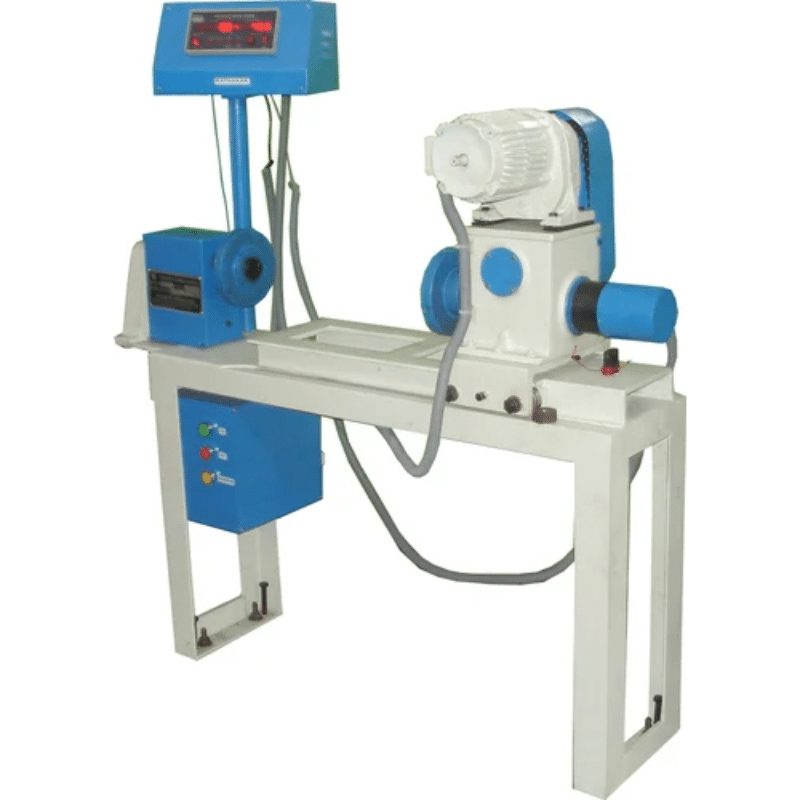Torsion Tester
Home » Test Machines » Torsion Tester
It is a much-needed instrument to evaluate the strength and efficacy of materials under the twisting forces. As the demand for torsion testers has grown, these machines now play a very important role in industries such as manufacturing and research, where quality control and innovation depend on the accuracy of torsional property measurements.
Get Information on Spaghetti Production Line Manufacturers
Find Your Torsion Tester
Torsion Tester manufacturers are an essential service provider who ensures that the best quality equipment is delivered for determining the torsional capacity and strength of materials. Be it aerospace development or automotive development or R&D, whether it is torsion testing requirements of the application, searching for the right testing machine is crucial for accurate results. Top manufacturers focus on innovative design and customizability; for instance, the customer can select custom torque ranges, will appreciate easy-to-use interfaces, and will want precision sensors built in to suit their exact testing requirements. Being offered a wide range of choices to choose from, trusting the manufacturer would ensure that the test procedure remains reliable, precise, and time-efficient. Custom Torsion Testers can greatly improve the testing of materials.

- High precision with digital measurement accuracy.
- Easy-to-read interface for efficient testing results.
- Compact design suitable for various testing environments.

- Measures torque and angle accurately for spring analysis.
- Durable design ensures consistent performance over time.
- Supports various spring types with adaptable configurations.

- Simulates repeated torsional stresses for fatigue analysis.
- Reliable performance for long-term durability testing.
- User-friendly controls for versatile specimen applications.

- Precise measurement of wire twisting and durability.
- Robust design ensures extended operational lifespan.
- Suitable for various wire sizes and materials.

- Digital interface for accurate and easy data recording.
- Adjustable torque settings for diverse testing requirements.
- Compact design enhances portability and workspace efficiency.
Torsion Tester Technical Parameters
| Specification | Digital Torsion Testing Machine | Torsion Spring Testing Machine | Torsional Fatigue Testing Machine |
|---|---|---|---|
| Purpose | Measures torque and rotational angle accurately for materials and components | Tests torque in torsion springs to evaluate performance | Assesses fatigue life under repeated torsional stress |
| Torque Capacity | Up to 500 Nm | Up to 100 Nm | Up to 300 Nm |
| Measurement Accuracy | ±0.5% | ±0.3% | ±0.5% |
| Rotation Speed | 0.01 to 300°/minute | 0.01 to 200°/minute | 0.01 to 150°/minute |
| Control System | Digital with touchscreen display | Digital with computer integration | Advanced digital system with data logging |
| Applications | Metal, plastics, and industrial components testing | Automotive, aerospace, and precision spring industries | Automotive shafts, aerospace materials, and failure analysis |
| Data Output | USB, software interfacing | Graphical reports via USB | Comprehensive fatigue cycle reports |
| Power Supply | 220V AC | 220V AC | 220V AC |
| Specification | Wire Torsion Testing Machine | Electronic Torsion Tester |
|---|---|---|
| Application | Used for testing the torsional strength of wires and springs. | Designed for precise torsion testing of various materials. |
| Torsion Range | 0.1 Nm - 100 Nm | 0.01 Nm - 200 Nm |
| Display | Analog | Digital/LED Display |
| Control System | Manual operation | Automated with software integration |
| Testing Speed | Adjustable (Low to Medium) | Adjustable (Low, Medium, High) |
| Accuracy | ±1% | ±0.5% |
| Power Requirement | Manual operation, no external power needed | Electric-powered, 110-220V, 50/60Hz |
| Additional Features | Portable design for small-scale operations | Data recording and analysis capabilities |
Application of Torsion Tester
Material Testing
Quality Control
Product Design
Failure Analysis
Research and Development
Frequently Asked Questions
To test for torsion, you use a torsion tester, which applies a rotational force to a sample. The device measures the torque and angle of twist as the material is subjected to stress. This data helps evaluate the material’s strength, elasticity, and ability to withstand torsional forces.
The purpose of torsion testing is to determine how a material or product performs under twisting forces. Torsion tests are commonly used to assess properties like shear modulus, yield strength, and the behavior of materials when subjected to rotational or shear stresses.
Standards for torsion testing vary depending on the material and industry application. Common standards include ASTM E143 for metals and ISO 7801 for metallic wires. These standards provide guidelines for test procedures, equipment calibration, and analysis of results.
Torsion tests are essential because they simulate real-world conditions where components may experience twisting forces. They help engineers and manufacturers ensure the reliability, durability, and performance of materials or products under torsional loads.
Torsional stiffness is tested by measuring the torque and the corresponding angle of twist applied to a sample. The stiffness is calculated by dividing the torque by the angle of twist, providing insight into the material’s rigidity and resistance to deformation.
A torsion tester can be used to evaluate a variety of materials, including metals, plastics, composites, and wires. The choice of material depends on the application and the specific industry requirements.
